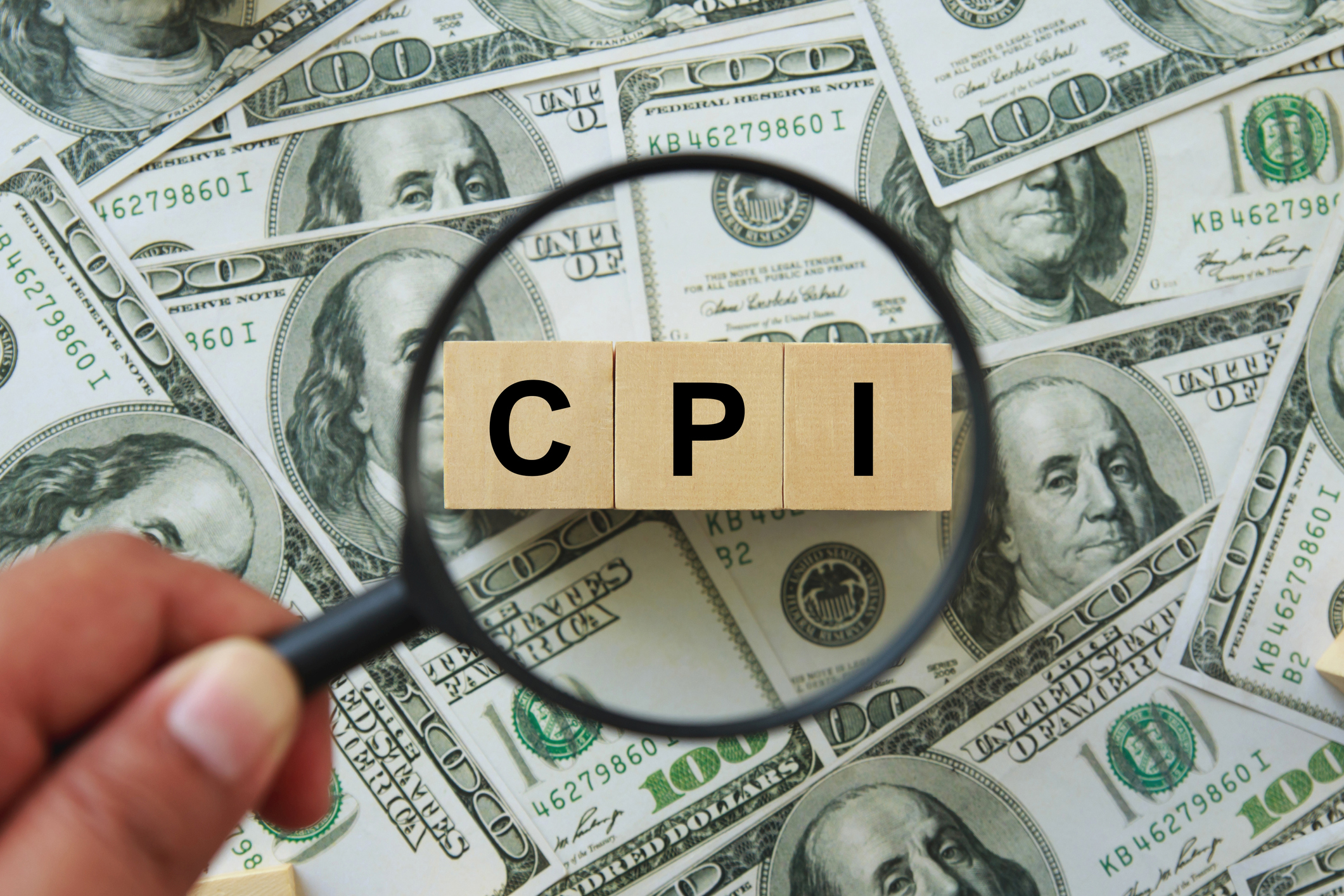What Is CPI?
It is imperative investors be able to answer the question "what is CPI" and to know how it is used.


Profit and prosper with the best of Kiplinger's advice on investing, taxes, retirement, personal finance and much more. Delivered daily. Enter your email in the box and click Sign Me Up.
You are now subscribed
Your newsletter sign-up was successful
Want to add more newsletters?

Delivered daily
Kiplinger Today
Profit and prosper with the best of Kiplinger's advice on investing, taxes, retirement, personal finance and much more delivered daily. Smart money moves start here.

Sent five days a week
Kiplinger A Step Ahead
Get practical help to make better financial decisions in your everyday life, from spending to savings on top deals.

Delivered daily
Kiplinger Closing Bell
Get today's biggest financial and investing headlines delivered to your inbox every day the U.S. stock market is open.

Sent twice a week
Kiplinger Adviser Intel
Financial pros across the country share best practices and fresh tactics to preserve and grow your wealth.

Delivered weekly
Kiplinger Tax Tips
Trim your federal and state tax bills with practical tax-planning and tax-cutting strategies.

Sent twice a week
Kiplinger Retirement Tips
Your twice-a-week guide to planning and enjoying a financially secure and richly rewarding retirement

Sent bimonthly.
Kiplinger Adviser Angle
Insights for advisers, wealth managers and other financial professionals.

Sent twice a week
Kiplinger Investing Weekly
Your twice-a-week roundup of promising stocks, funds, companies and industries you should consider, ones you should avoid, and why.

Sent weekly for six weeks
Kiplinger Invest for Retirement
Your step-by-step six-part series on how to invest for retirement, from devising a successful strategy to exactly which investments to choose.
"What is CPI" is likely a question not as many folks are asking these days given how hyper-focused on inflation we've all become in recent years. Still, it's a worthy question for those not as well-versed on the topic of rising prices.
You see, when people talk about how they were once able to buy a gallon of gas for a quarter and bread for less than two dimes, they're complaining about inflation, or the rising cost of goods and services over time. And when people talk about inflation, they often refer to the Consumer Price Index, or CPI.
"CPI tells an important story and one that all consumers should follow, at least in a broad sense," says Ryan Detrick, chief market strategist at Carson Group. If CPI shows rising inflation, the Federal Reserve will hike interest rates to slow things down, which could mean higher loan and mortgage rates, but also higher return on your bonds and savings.
From just $107.88 $24.99 for Kiplinger Personal Finance
Become a smarter, better informed investor. Subscribe from just $107.88 $24.99, plus get up to 4 Special Issues

Sign up for Kiplinger’s Free Newsletters
Profit and prosper with the best of expert advice on investing, taxes, retirement, personal finance and more - straight to your e-mail.
Profit and prosper with the best of expert advice - straight to your e-mail.
"The flip side is when inflation is cooling, the Fed will likely stop hiking rates, which could mean yields will stop moving higher," Detrick says.
While you don't need to know every granular detail about CPI, you should have a solid understanding of what it is and how it's used – especially if you're an investor.
What is CPI?
To understand what CPI is, Jon Maier, chief investment officer at Global X, says to think of a shopping basket filled with the items you regularly purchase. There's milk, bread, a pair of shoes, gasoline for your car, and anything else you pay for in a given month.
"Now, imagine that every month, you check the total cost of everything in this basket," Maier says. This is how the Bureau of Labor Statistics uses CPI.
CPI is a measure of the average price of that basket of goods and services over time, Maier says.
The specific goods and services within the CPI basket are based on information around 24,000 families and individuals give the U.S. Bureau of Labor Statistics on what they buy.
"Because these are common things that consumers use all the time, the hope is that this tells a good story for how much prices are changing on the consumer," Detrick says.
When the price of the items in that basket go up, CPI rises, which is a sign of inflation. When the prices go down, CPI also declines, indicating deflation.
There are two primary versions of CPI: core CPI and headline CPI. "All you need to know is that core CPI removes the price changes in the volatile areas of food and energy prices," Detrick says. These areas are removed because their increased volatility can throw off the overall reading. Without them, CPI can better represent the underlying price trajectory trend.
"Of course, many spend a lot of their disposable income on energy and food, so you could make a very good argument that this is more important to the consumer," Detrick says. In other words, both headline CPI and core CPI are good to know and track as long as you're aware of what each involves.
How is CPI used?
"The CPI is used to gauge the economic conditions of our country," says Wayne Durr, a finance professor at Stonehill College. It is "the primary marker used to measure the effectiveness of Chairman Powell and the government's monetary and economic policies."
The CPI is primarily used to measure inflation, but what it says about the economy can have a significant impact on how individuals, businesses and the government behave.
"Governments and central banks often rely on CPI data to inform and shape their economic policies, especially those concerning interest rates," Maier says. "CPI also plays a crucial role in indexing, where it adjusts amounts in various contracts, tax brackets and other financial obligations to account for inflation."
If you're on Social Security or Supplemental Nutrition Assistance Program (SNAP) benefits, you can thank the CPI data when your payments rise to help combat the increasing cost of living during inflation.
Economists also use CPI to forecast potential Federal Reserve policy, Detrick says. "But at the end of the day, it is important for the average consumer to be aware of what prices are doing when it comes to budgeting and potential spending."
Why should I care about CPI?
"In simple terms, the CPI is like a thermometer for the economy," Maier says. When things are heating up and inflation is on the rise, CPI climbs higher. Then as things cool off and inflation declines, CPI will also fall.
For investors, CPI is important to pay attention to because inflation can have a detrimental effect on your savings by eroding purchasing power. Just ask your grandfather how much he could buy for a dime to see how the value of the U.S. dollar declines over time.
"If you're earning a 2% return on investment, but inflation is 3%, you're effectively losing money in terms of real purchasing power," Detrick says.
You should also be aware of CPI because it affects the Fed's interest rate decisions and interest rates influence both stock and bond returns. When rates rise, stock and bond prices decline, while the coupon rates on new bond issues increase.
"With the Federal Reserve's current monetary policies, higher CPI can be a sign that interest rates will rise and that could cause business movement to slow down," Durr says. "The CPI gives investors a way to gauge the risks of inflation and find solutions to mitigate that risk."
Related content
Profit and prosper with the best of Kiplinger's advice on investing, taxes, retirement, personal finance and much more. Delivered daily. Enter your email in the box and click Sign Me Up.

Coryanne Hicks is an investing and personal finance journalist specializing in women and millennial investors. Previously, she was a fully licensed financial professional at Fidelity Investments where she helped clients make more informed financial decisions every day. She has ghostwritten financial guidebooks for industry professionals and even a personal memoir. She is passionate about improving financial literacy and believes a little education can go a long way. You can connect with her on Twitter, Instagram or her website, CoryanneHicks.com.
-
 Dow Adds 1,206 Points to Top 50,000: Stock Market Today
Dow Adds 1,206 Points to Top 50,000: Stock Market TodayThe S&P 500 and Nasdaq also had strong finishes to a volatile week, with beaten-down tech stocks outperforming.
-
 Ask the Tax Editor: Federal Income Tax Deductions
Ask the Tax Editor: Federal Income Tax DeductionsAsk the Editor In this week's Ask the Editor Q&A, Joy Taylor answers questions on federal income tax deductions
-
 States With No-Fault Car Insurance Laws (and How No-Fault Car Insurance Works)
States With No-Fault Car Insurance Laws (and How No-Fault Car Insurance Works)A breakdown of the confusing rules around no-fault car insurance in every state where it exists.